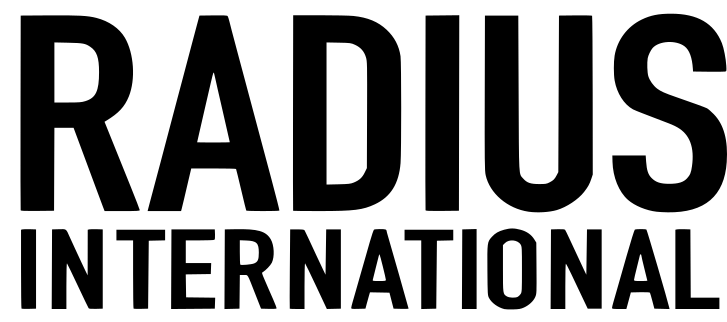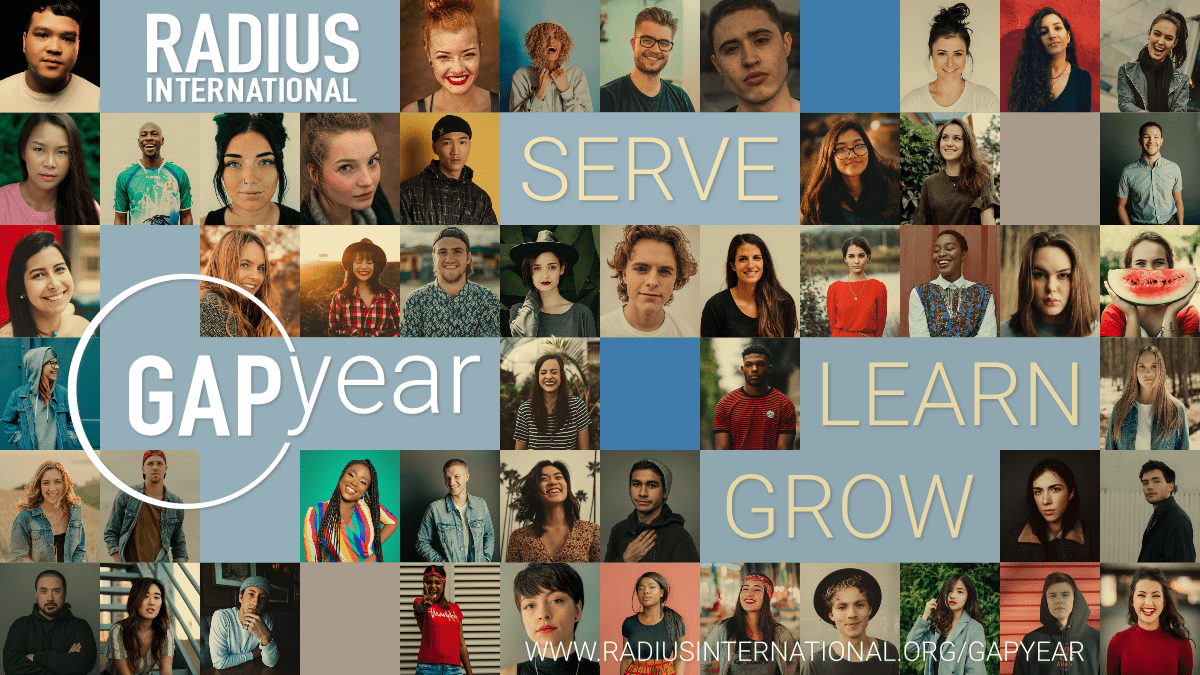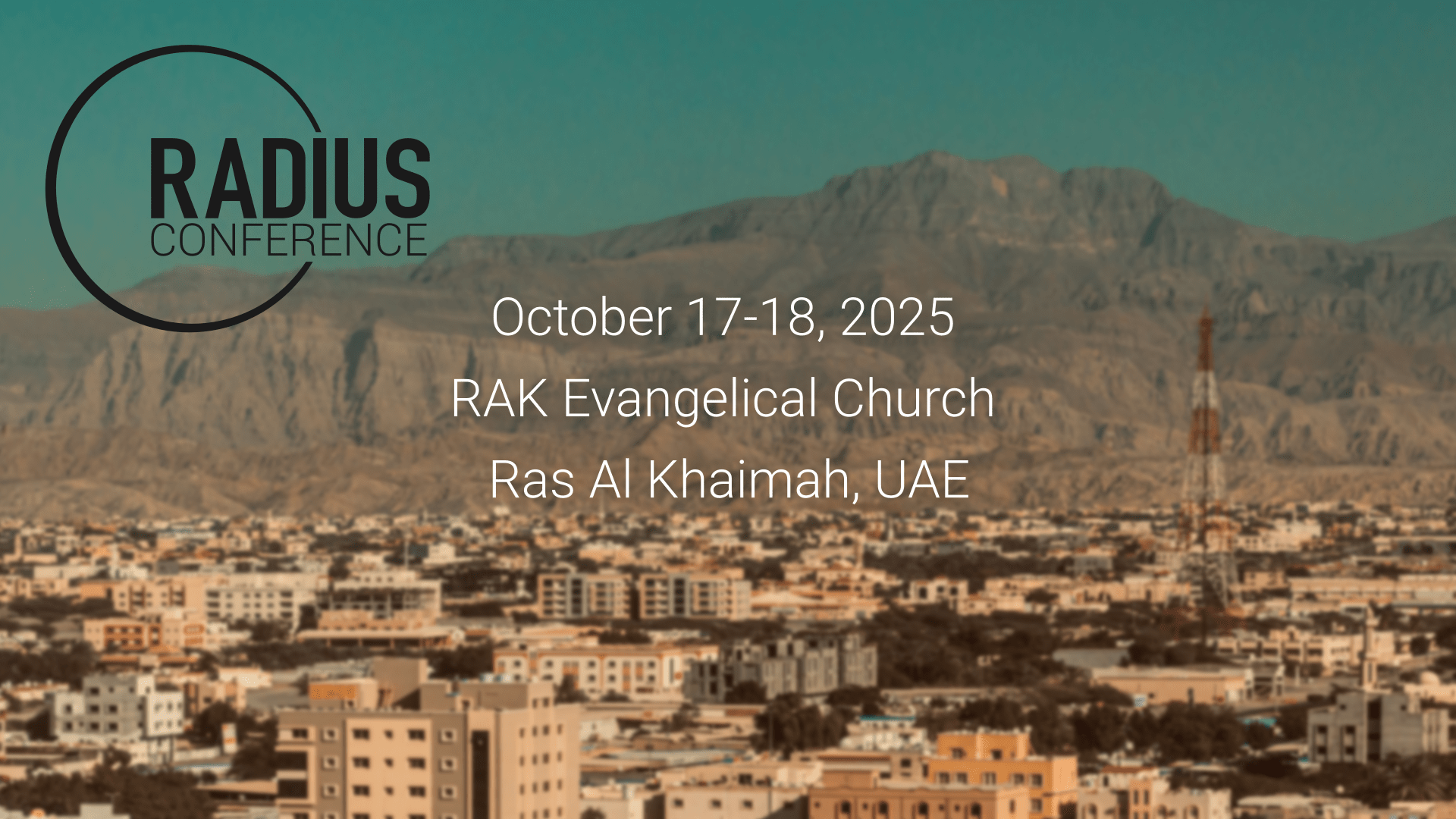Culture & Language Acquisition
Your primary tool as a cross-cultural church planter is language. You are communicators of a message. You need to be 100% certain that your message is being heard accurately. You need to handle language the way a skilled surgeon handles a scalpel! Too often this is felt to be an impossible goal.
Our Western commitment to efficiency asserts, “Time doesn’t allow for it”, so we treat fluency in language as an unrealistic or idealistic luxury. We end up tossing out our “best shot” at communication, and just hope or assume that God will fix our errors. But sound biblical missiology demands that you fully incarnate the gospel and do everything possible to live out the missiological principle, “As the Father has sent Me, I also send you”. At Radius, we’ve made a huge commitment to preparing you to achieve true fluency in the heart language of those you are sent to impact. During your 10 months with us, Radius will teach you the skills to do that, from the acquisition of basic sounds, all the way through to telling of extended stories and managing higher level discourse. You will even be trained in the principles and methodology of Bible translation. At Radius you will be trained in the following areas of Culture & Language Acquisition.
LANGUAGE ACQUISITION SKILLS
You will develop the mindset, the understanding and the skills for entering a new community (albeit from a very non-flattering starting point) and for moving on to becoming a relevant participant and communicator in that community. From strategies for striking up conversations by using memorized expressions, to methodologies designed to generate a rapidly expanding core of comprehended vocabulary in a variety of sentence patterns, you will experience some of the challenges and rewards of real-time culture and language acquisition, in the context of real-life, cross-cultural friendships. You will develop a clearer picture of how to apply specific methodologies to move towards a high level of proficiency during the later stages of culture and language acquisition. You will also receive practical resources for planning, implementing and evaluating your learning during those later stages of culture and language acquisition.
PHONETICS
You will learn to identify and reproduce the sounds of the language of your target people so that you can speak without an accent. You will learn the articulatory and acoustic characteristics of consonants and vowels, the differences of tone and stress, aspiration, fricativization, nasalization, glotalization. As a language learner these skills are vitally important for several reasons:
- so that you can identify, write down, and reproduce sounds in normal speech at normal speeds
- so that you can comprehend the subtle differences in sounds that make significant differences is meaning
- so that you sound like a person who can speak with authority (and not like a little child)
- so that you sound like you belong, not sound like a foreigner
- so that your message sounds like it belongs, not like something foreign
SELF-ASSESSMENTS
You will learn to do self-assessments in order to gauge your progress in language learning, and then to develop strategies to shore up the weak areas.
VOCABULARY
You will learn how to develop a working vocabulary in your target language and how to determine the domain of meaning of individual words so that you will know the right words to choose (and to avoid) to communicate biblical themes clearly. Too often missionaries use “something close” and they unwittingly sound either crass, juvenile, “old school”, or trendy. Proper vocabulary, not just workable alternatives, takes time to investigate and land on.
GRAMMATICAL ANALYSIS
In all languages, sounds must be put together in consistent, predictable patterns in order to communicate meaning correctly. Your new language will likely have a very different grammatical structure than your own language, which will require a reprogramming of your brain in the areas of morphology (constructing words) and syntax (constructing phrases and sentences). During this course, you will understand and practice some of the basic concepts and procedures for analysis which will enable you to address grammatical obstacles in your pursuit of language fluency.
PHONEMICS
You will learn how to break down the sound system of a language so that if you are dealing with an unwritten language, you will be able to develop a reliable alphabet and thus be able to translate Scripture into that language.
DISCOURSE ANALYSIS
You will learn how to distinguish between different types of communication in your target culture. Exhortation/preaching, storytelling, poetry, teaching, humor, etc., all have unique stylistic tendencies in each language. You must navigate those areas well so as to give the Gospel an accurate hearing. As you communicate the Gospel, you don’t want it to sound like a fairy tale, but like extremely important truth. The way you communicate can be as important as what you communicate!
LITERACY PROGRAM DEVELOPMENT
You will learn how to teach illiterate and marginally literate people to read and write their own language. Having access to God’s Word in written form is a critical element in the survival and growth of a local church.
BIBLE TRANSLATION
You may need to provide a new or a revised translation of the Word of God for your target people. You will be given the tools to assess that need and then to know how to approach the process of Bible translation. Again, having the written Word of God in their language is essential to ensure the on-going health, growth and survival of each and every local church.
CULTURE ACQUISITION PROGRAM
In order to communicate the gospel in a way that makes sense to your target people, you need to understand how they think, how they see life, what they are hearing by what you are saying, etc. In fact, you need to be able to anticipate the most likely ways you’ll be MIS-interpreted. Language and culture are inseparable!
You cannot learn culture without language, and you cannot understand the meaning and functioning of language without culture. Without knowing the culture exceptionally well, you have no hope of making the message of the Gospel either understandable or culturally relevant. If it is not understood the danger is that it will be “accepted” on a superficial level resulting in syncretism. If it is not culturally relevant, it will always be perceived as foreign and will never root…it will never multiply or become a “movement”. The brutal reality is that, most often, it is the missionary himself that hasn’t realized the misunderstanding that he has created.
CULTURE ACQUISITION PRINCIPLES
Based in the example of our Lord Jesus Christ, you will learn about the commitment to become relevant in a new context, and about the crucial attitudes of humility and eagerness-to-learn that will allow you to make good progress. Upon the foundation of proper attitudes, we will teach you how to strategically and actively pursue the relationships that will be key to acquiring an accurate understanding of the worldview that shapes the people you plan to impact.
CULTURE ACQUISITION METHODOLOGIES
You will learn the principles of applied anthropology in order to observe, process and categorize each of the components of your host culture. In the context of your growing circle of trusted friends in the community, you will move yourself from complete outsider, to a person who actually understands what’s happening around you and why it’s happening. You will learn to work from the basics of material culture (houses, pets, cars, pots, utensils, weapons, toys, tools, clothing, etc.) to social culture (family, clan, tribe, outsiders, random insiders, old age, responsibilities to and from all those relationships, who has honor, ways to lose and gain honor), to economics (buying, selling, trading, types of employment, ideas of wealth/poverty, prestige within various disciplines, valid and invalid expectations in all these areas) to aesthetics (beauty, poetry, art, craftsmanship) to recreation (acceptable relaxation, different types and status of each). You will learn to keep a cultural journal covering each of these areas as well as to identify beliefs and values behind observed behaviors and to identify integrating themes across the culture.
CULTURE ACQUISITION PRACTICUM
The 20 hours per week spent in Culture and Language Acquisition OUTSIDE of the classroom allows you to work through the beginning stages of forming friendships with people of a different language and culture. It is through active pursuit of people, developing relationships, and learning to see life through THEIR eyes that you will be able to apply the Culture Acquisition principles and methods being taught in the classroom.
WORLDVIEW
You will learn WHAT a worldview is, how it is formed, and how strongly it shapes the way you (and everyone else!) thinks. We will equip you to become aware of the worldview of those you’re intending to communicate with, and to find the areas of tension between their worldview and a biblical worldview. This understanding is crucial in making the Truth about God understandable.
In the context of trusted relationships, built over time, and communicating at a proficient level in the heart language, you will learn how to uncover the core beliefs and values that form the worldview of the target community. You’ll investigate beliefs about creation, the creator(s), spirits (good and evil), and about the afterlife (Where do the dead go? When do they go there? For how long do they stay?). We’ll equip you to gain deep understanding of both formal (Islam, Buddhism, Hinduism) and informal (animism) religious influences. You will learn to uncover what people REALLY believe about the gods and spirits that control their world, what areas of life they control and how they are appeased. You’ll be taught to investigate the local concept of “sin”, and how it is dealt with. Is there a judgment? Is there a judge? Is there anything I can do about it?
These and countless other worldview questions must have solid answers before you ever think of speaking meaningfully of what Christ has done. The message of the Gospel must be understood at a worldview level. You do not want your message to provoke behavioral changes that are not rooted in a clear understanding of who Christ is, and the significance of what He has done. Only when your language proficiency is adequate, and your cultural and worldview understanding is solid, will you be able to tailor your teaching to strike at the heart level with relevance and power.
When you begin opening your mouth to speak about eternal truth and worldview level belief, you cannot be guessing about what mental images your words and examples are triggering. Without specific, pointed, detailed investigation of important worldview areas, you can – and will – speak only in generalities within a small arena of what you think you “know”, and your message will be terribly susceptible to syncretism.
ETHNOGRAPHIC INTERVIEW
Ethnographic interviewing is a routine practice in cultural anthropology, but we will push it to a deeper level, for we will carry it out in the context of trusted relationships. You will learn how to strategically work through the different areas of culture and worldview, gaining an insider’s perspective on values, beliefs and perspectives. This is the way we methodically insure that, through the dynamic of trusted friendships, we’re actually getting a good grasp of the people and the community where we want to plant the church.
FORM AND MEANING
In all areas communication, the difference between “form” and “meaning” is hugely significant. When functioning in our own language and culture, we intuitively manage that difference, and we depend upon it constantly! But what we do intuitively in our own culture can really hinder clear communication across cultural and linguistic boundaries. We want you to avoid the common communication errors that take place when we assume that similar “forms” shared by two cultures have similar “meanings”. We’ll equip you to become aware of the form-meaning challenge and teach you how to successfully manage it.
 We train individuals, couples, and families who are committed to long-term, pioneer church planting among unreached language groups. RADIUS students acquire spiritual, relational, emotional, and moral maturity as well as the physical stamina that will enable them to survive the rigors of cross-cultural work and life.
We train individuals, couples, and families who are committed to long-term, pioneer church planting among unreached language groups. RADIUS students acquire spiritual, relational, emotional, and moral maturity as well as the physical stamina that will enable them to survive the rigors of cross-cultural work and life.
 Do you desire to take the Gospel to those who have never heard and see a healthy church established? Apply today for our immersive training program.
Do you desire to take the Gospel to those who have never heard and see a healthy church established? Apply today for our immersive training program. Are you interested in learning first-hand about RADIUS training and whether or not it is a good fit for you or your people? Join us for RADIUS Days to see campus, sit in on classes, and interact with current students, interns, and staff.
Are you interested in learning first-hand about RADIUS training and whether or not it is a good fit for you or your people? Join us for RADIUS Days to see campus, sit in on classes, and interact with current students, interns, and staff. Come to one of our campuses in Mexico for a week-long, intensive program to serve via various campus work projects, learn more about The Great Commission, and get a taste of what our students experience during their year with us.
Come to one of our campuses in Mexico for a week-long, intensive program to serve via various campus work projects, learn more about The Great Commission, and get a taste of what our students experience during their year with us. Our friends at Missionary are hosting a conference for young adults and their leaders on June 13-14th, 2025 at NorthCreek Church in Bay Area, CA.
Our friends at Missionary are hosting a conference for young adults and their leaders on June 13-14th, 2025 at NorthCreek Church in Bay Area, CA.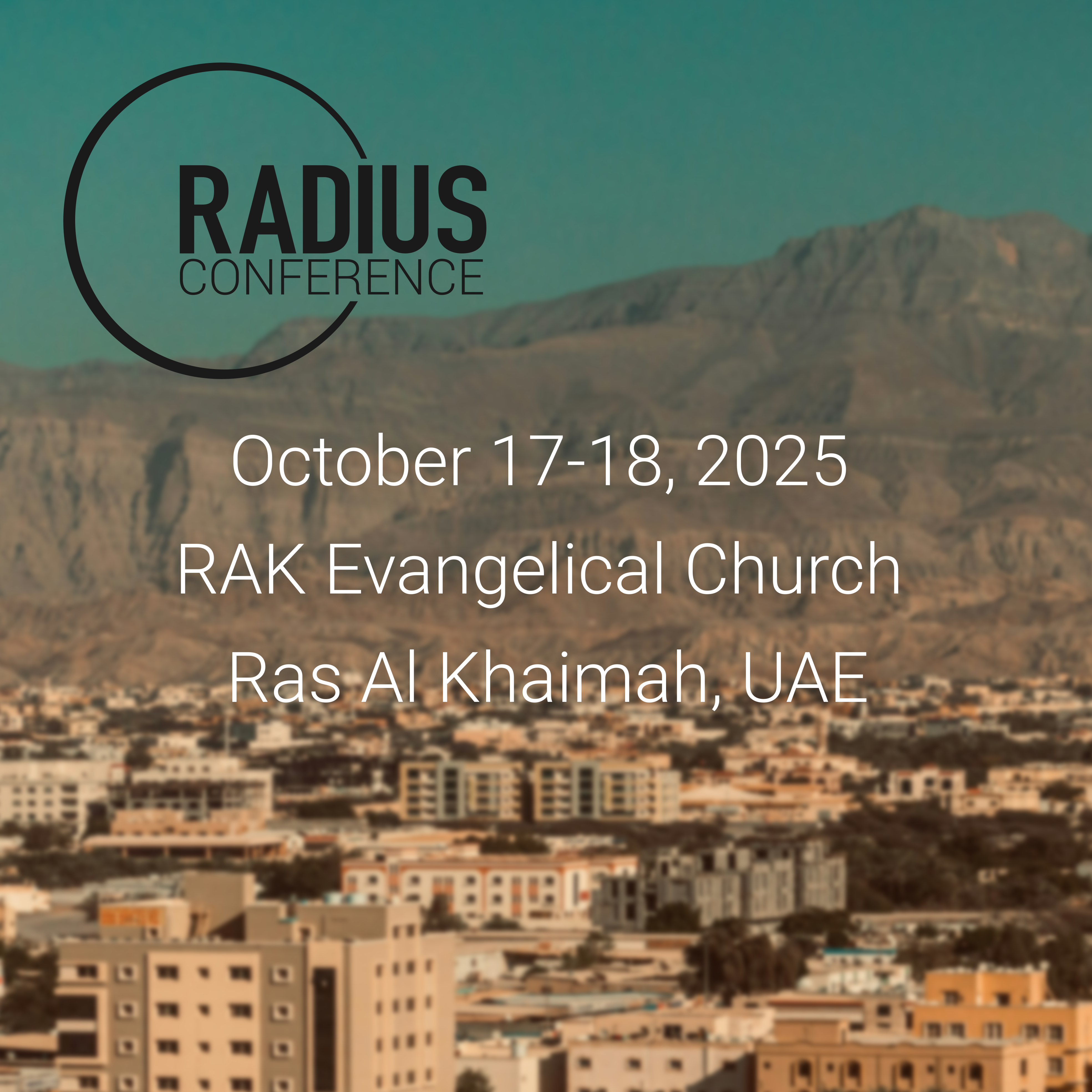 Join us for The Radius Conference on October 17-18th, 2025 at RAK Evangelical Church in Ras AL Khaimah, UAE.
Join us for The Radius Conference on October 17-18th, 2025 at RAK Evangelical Church in Ras AL Khaimah, UAE.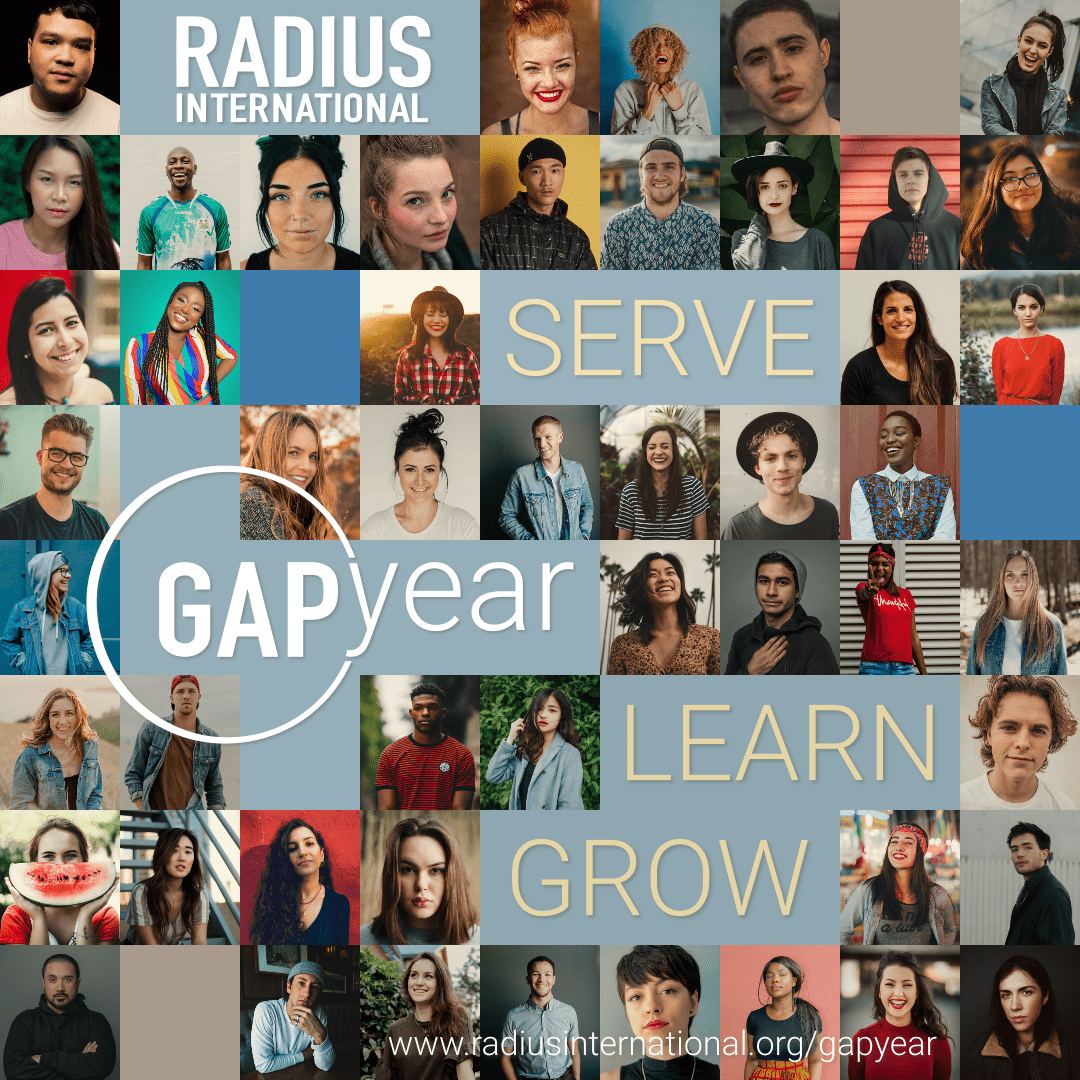 Spend 9 months in Mexico and play a vital role in The Great Commission through serving our staff and students while gaining valuable cross-cultural experience and opportunities to grow in your faith.
Spend 9 months in Mexico and play a vital role in The Great Commission through serving our staff and students while gaining valuable cross-cultural experience and opportunities to grow in your faith. Would you like to join us in our efforts to further the spread of the Gospel in still-unreached places? Support the work of RADIUS International by donating online.
Would you like to join us in our efforts to further the spread of the Gospel in still-unreached places? Support the work of RADIUS International by donating online. Are you or your church interested in giving towards a special missions opportunity? Learn more about some of our current projects.
Are you or your church interested in giving towards a special missions opportunity? Learn more about some of our current projects. Partner with some of our current students by paying their tuition/room & board.
Partner with some of our current students by paying their tuition/room & board. Reimburse RADIUS for on-campus lodging and/or meals.
Reimburse RADIUS for on-campus lodging and/or meals. Check out our blog for recent posts from our staff, alumni, and ministry partners.
Check out our blog for recent posts from our staff, alumni, and ministry partners. Purchase recommended books from our online bookstore at 10ofthose.com.
Purchase recommended books from our online bookstore at 10ofthose.com.
 Do you desire to take the Gospel to those who have never heard and see a healthy church established? Do you think RADIUS might be a good fit for you? Apply today!
Do you desire to take the Gospel to those who have never heard and see a healthy church established? Do you think RADIUS might be a good fit for you? Apply today!
 Interested in working with RADIUS? Learn more about open positions.
Interested in working with RADIUS? Learn more about open positions.